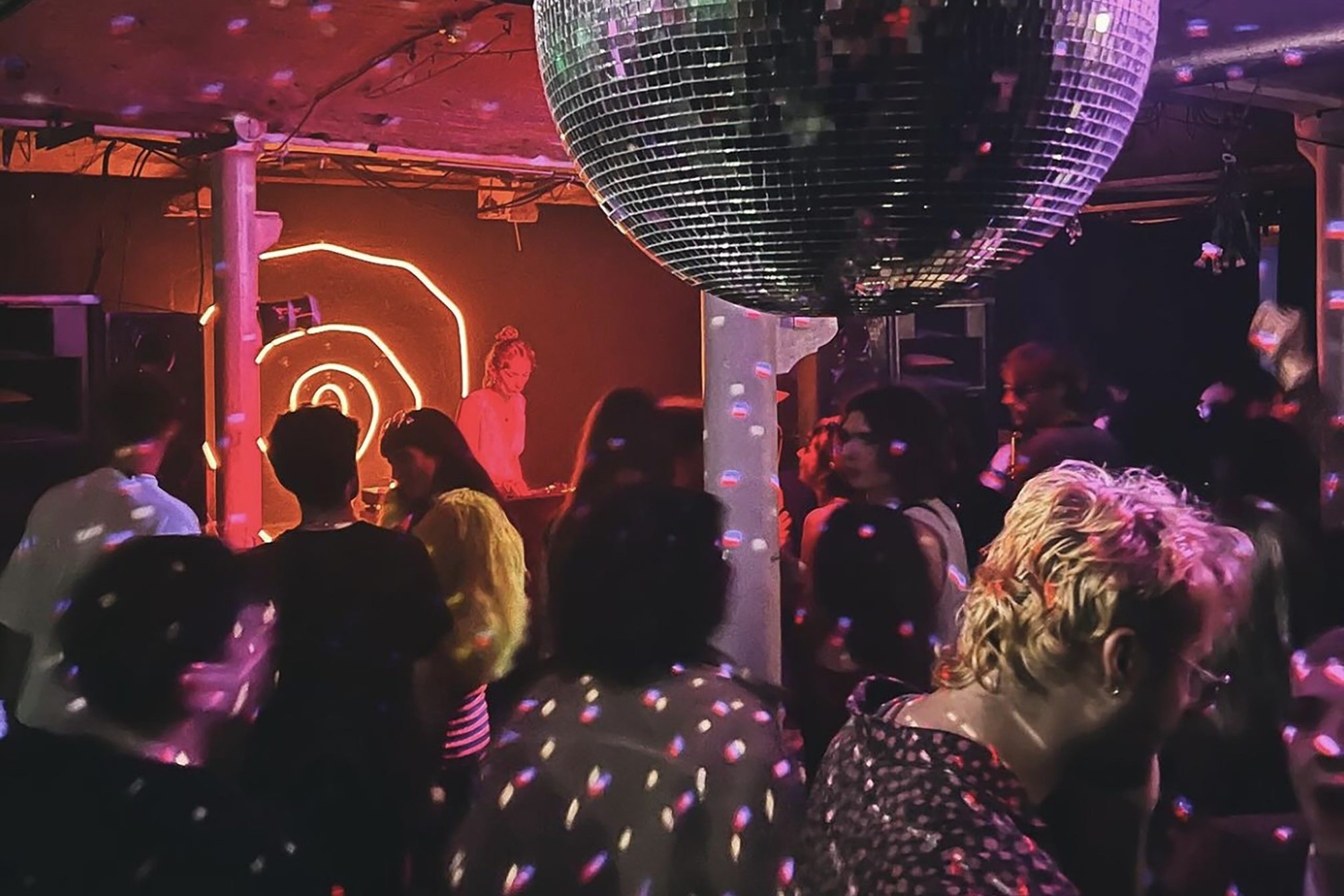 Features
Features
Why we need our DIY spaces and co-operative venues more than ever
Researcher and DJ Mike Smaczylo explores what the struggles of DIY nightlife and co-operative venues tell us about contemporary club culture, and why these spaces need to be supported
The cost of living crisis has been felt in every area of our lives in the last year - with conversations dominated by anxieties over rising rents and bills, filtering the minutiae of everyday decision-making through a lens of financial angst. Culture is often a good barometer for the storms in social and economic spheres, and it’s hard not to notice a change in our clubbing environments lately, with astronomical ticketing and drinks prices, increasingly risk-averse programming, and a doubling down on big-name DJ bookings. These effects are being felt across the board, but the hardest hit are those venues committed to doing things differently, trying to challenge the commercial logic of wider club culture with alternative, non-profit or co-operative ownership structures, creating space for queer, POC and working class folk where the power structures ingrained in every day interactions can be deliberately mitigated, or resisting the massive polarisation of wealth in the arts by spotlighting local and lesser-known DJs and artists.
Last year, Glasgow lost a vitally important queer venue. In its two years of opening Bonjour set a standard in the city with safer spaces policies and booking regulations, which prioritised local and queer DJs. Fully non-profit and owned by the membership, Bonjour provided a space, for free, to community groups and skill-sharing initiatives like the Small Trans Library, funded by parties in the event space. They implemented accessible ticketing structures, including free entry for anyone that couldn’t pay, and established a taxi fund to ensure partygoers could get home safely, whether they could afford it or not. The troubles began early, with the collective taking on their lease just before the first COVID lockdown. With the majority of COVID support in the arts going to large commercial organisations and the Tory government failing to provide adequate rent controls, by the time Bonjour became an active club they were in two years of arrears. When the cost of living crisis hit last year, accompanied by rent increases, massive inflation in electricity bills, drinks prices, and all the various elements that go into maintaining a venue, Bonjour struggled between keeping the space accessible to their community and meeting basic overheads. They tried various funding avenues but didn’t have the resources to acquire charitable status and were therefore considered a Limited Company, beholden to corporation tax and the same rules that apply to profit-making businesses. This is a problem faced by many non-profit organisations, which are generally not distinguished from profit-making companies unless they have the capacity and expertise to process the extensive admin and meet the stringent requirements for charitable status. Crowdfunding provided some success and a great deal of support from Glasgow’s wider arts community, but ultimately the rising costs were too much and Bonjour closed its doors late last year.
Read this next: How The Cost Of Living Crisis Is Impacting Nightclubs And Promoters
With violence escalating against trans folk in the last couple of years and the Tory government continuing to weaponise transphobic discourse, Bonjour’s accessibility structures were not frivolous considerations. For co-op member Frankie, these are basic services our venues should provide to their communities and fundamental principles for making our spaces accessible and inclusive. DJing in other venues since Bonjour’s closure, she’s felt its absence, experiencing transphobic prejudice and harassment from security or punters, where venues have been less conscious or proactive in their safeguarding policies. It’s precisely this sense of safety and liberated possibility that venues like Bonjour can provide, with their anti-hierarchical and co-operative decision-making structures ensuring that the community can curate the space and its values together. Since the closure, Frankie tells us, co-op members have been inundated with messages from the community with stories of people coming out to their friends in the venue, exploring sides to themselves which otherwise stayed hidden in public spaces, or growing into identities first found during lockdown.
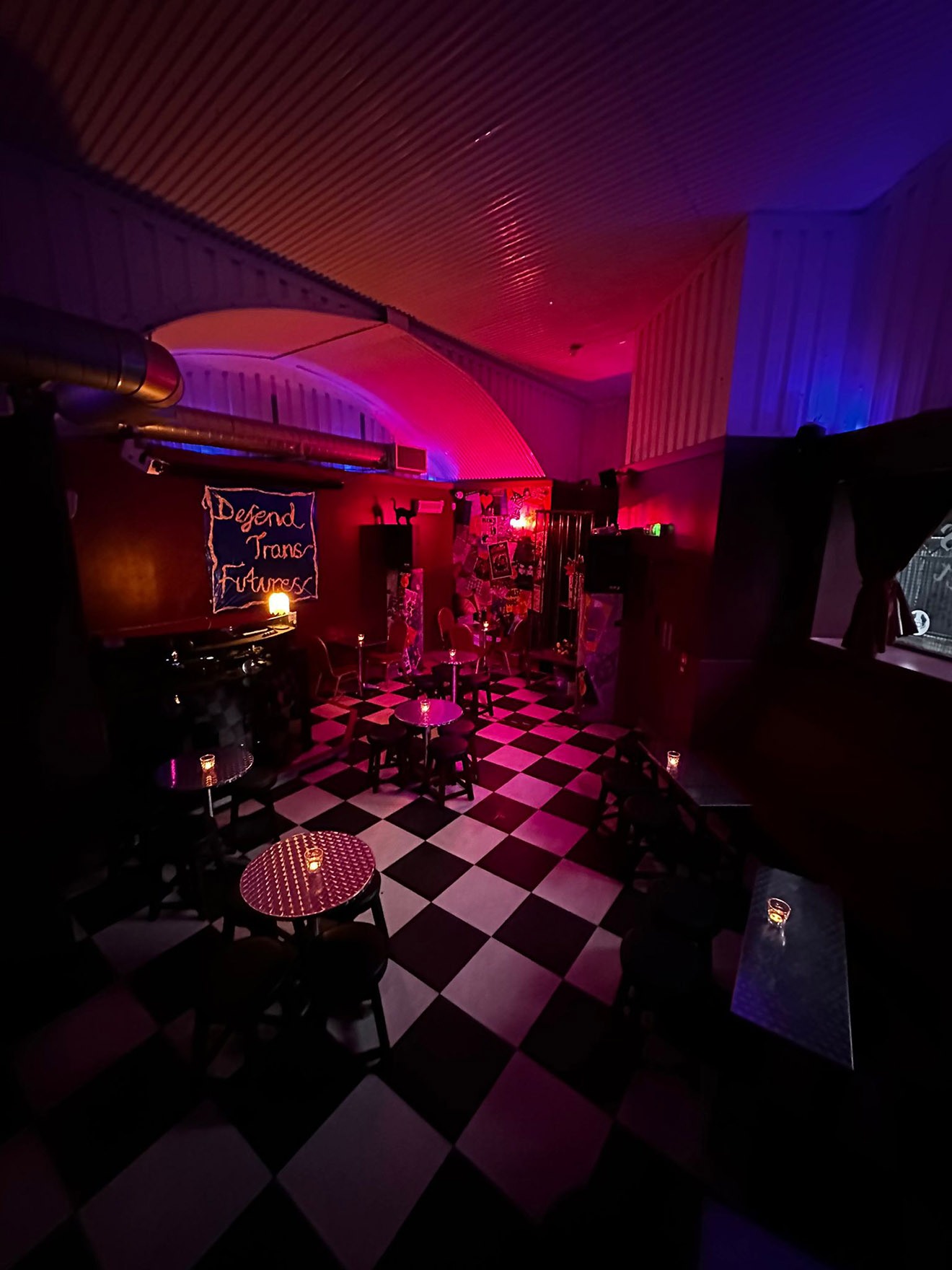
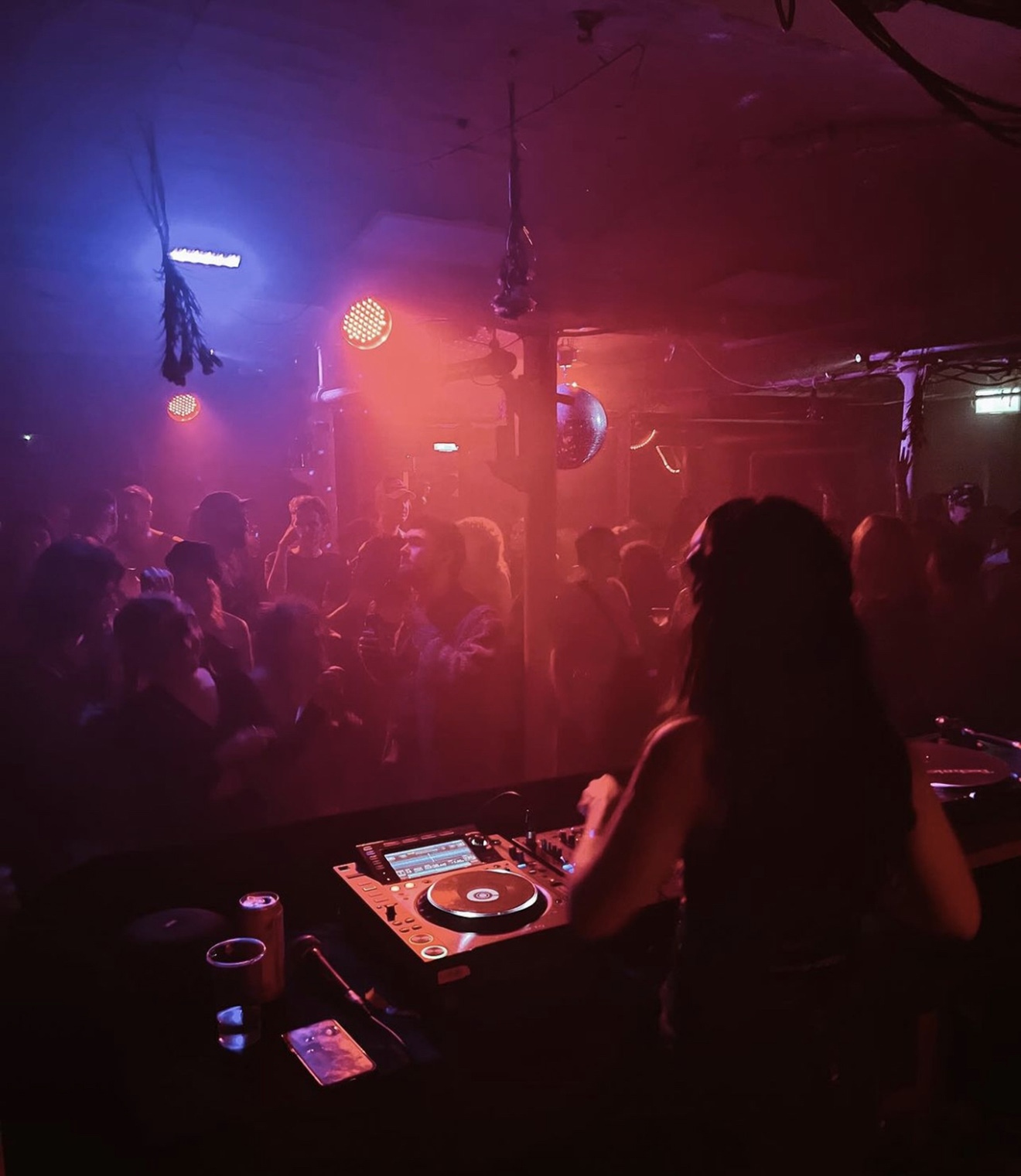
Partisan Collective has many similar stories. Partisan is a non-profit, largely volunteer run collective based in Manchester, where the co-operative movement first took root following the establishment of the Rochdale Pioneers, just up the road, in 1844. Partisan set up to provide heavily subsidised working and meeting spaces to charities, activist groups, and community projects, funded by a DIY, values-driven, queer club space. They formed around 2015, taking over two floors of an ex-synagogue building in Cheetham Hill, on the northern outskirts of the city centre. The upper floor provided office space, hosting charities and activist organisations centred on support for women facing domestic abuse, legal aid for refugees, LGBTQI+ rights, and housing action, as well as community projects within the diverse population of Cheetham Hill. The basement hosted monthly events stacked with local talent, diverse bookings, and the occasional all-nighter with the likes of Ben UFO or Objekt, who waived their fees to support Partisan’s wider activities. According to Teegs, who has been active in the organisation since the early days, “regalvanising the level of activity after COVID has been a difficulty” for Partisan as well.
During the lockdowns, with all events cancelled and little sympathy from the landlord or support from government, Partisan had to vacate the original venue. Once lockdown was lifted, they moved into a temporary office space, which only allowed for a few individual hot desks, making it inaccessible for some of the larger charity groups that had used the previous space. It wasn’t well suited for events, which damaged their main revenue stream. Partisan moved into Islington Mill’s club space last year and recently opened a community space which is almost in fit enough condition to continue hosting groups like LGBTQI+ charity Mermaids, No Borders, and the anti-enclosure organisation, Right To Roam. But a lot of the old momentum had been lost and it’s a struggle to build it back up. On top of this, rents in Manchester are competing with London these days, while salaries have remained static, leading to a situation in which the average person in Manchester spends 80% of their salary on rent and basic living costs, compared to 72% in the capital. The venue’s rent is astronomical and unclear commitments from the landlords have left Partisan’s minimal staff and volunteers responsible for maintenance issues in the building, while the rising costs of drinks and basic goods, corporation tax and VAT, have led to constant questioning over what costs can be absorbed by the collective and what must spill over to the community, with potential compromises to access. For Partisan, the collective’s values will always take precedence over earnings, so the space will remain open only as long as maintaining those can be sustainable – which is an increasingly difficult balance in the face of rapidly rising overheads.
Read this next: Manchester cooperative Partisan is ushering in a new era of socially conscious clubbing
Teegs tells us that they didn’t enjoy clubbing before Partisan, feeling alienated and unsafe in the heteronormative environments of commercial clubs. It’s easy to feel stuck between straight clubbing’s policing of norms and hostility towards otherness, and the sort of commercialised gay culture represented in Manchester’s gay village or London’s Soho, which has coalesced around its own set of norms, aesthetics, and assumptions, which are often no less strictly enforced. DIY collectives are fundamentally built on pluralism, by coalitions of individuals who can acknowledge their collective needs and dreams, while understanding and embracing their differences. The dynamic inherent to clubbing in general is that we, as consumers, pay to enter into a culture that’s dictated by those that hold the purse strings. But by offering a clear route of empowerment to ownership, collectives and co-operatives also empower us to create the culture, from the ground up. It’s only in this way that the idea of queer community, with its specific connotations of togetherness embracing difference, can be genuinely meaningful.
Italian philosopher Paolo Virno makes a distinction between the mass and the multitude. The mass is a single unit, premised on conformity. It’s therefore built on exclusion, as an inability or refusal to conform means expulsion from the unit. The multitude, on the other hand, is formed of innumerable individuals and small groups or coalitions, with a variety of beliefs, desires, and ideas, which nevertheless can coexist on the basis of shared needs. While mass culture is about passive consumption of norms, collective culture is about the active participation of the multitude, negotiating conflicts and establishing shared values.
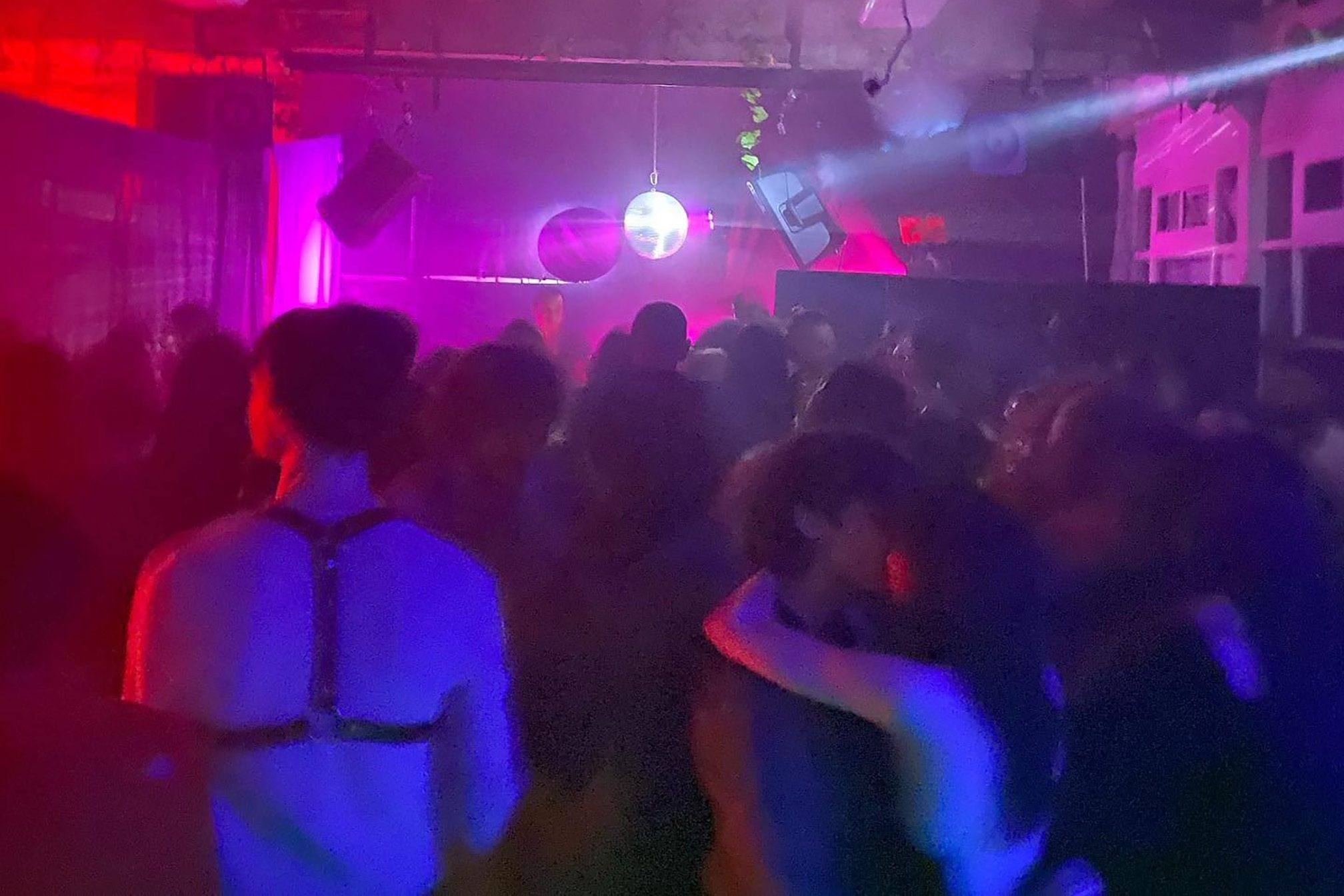
The dance music press is often guilty of propagating the idea that contemporary clubbing is the natural descendent of the iconoclastic spirit of rave, but in another light, it can be seen as a symptom of its near-total defeat. At the same time as the free party movement was crushed by heavy handed policing and draconian legislation, commercial superclubs were negotiating late licenses with police and absorbing rave’s collective energy back into the logic of landlordism, drinks sales and pricey ticketing. These days, club culture is our norm, even in the self-styled ‘underground’, while the wildly excessive punishments for unlicensed parties - which can involve as much as £10,000 in fines for organisers, the routine impounding and destruction of expensive sound equipment, and possible criminal charges - have driven illegal raves into the hands of promoters that either can afford the fines or are more accustomed to conflicts with the law. In either direction, this disempowers communities from building culture collectively, drastically compromising our ability to hold space for our difference, and to foster collective responsibility for each other’s safety.
Terre Thaemlitz, or DJ Sprinkles, has discussed the idea propagated by the marketers of commercial clubbing, that the club is, by default, a space where the rules are overturned, of open experimentation and liberated movement. On the contrary, she argues, clubs tend to reinscribe all the heteronormative, patriarchal, racist, and classist power relations of the world outside: "The House Nation likes to pretend clubs are an oasis from suffering, but suffering is in here with us." For all their anti-establishment rhetoric, most of our venues are profit-making organisations, fundamentally built on leveraging space to extract wealth from their audiences, most of which goes in neo-feudal tithes to brewery barons and landlords. Built on the fundamental power relations of property-ownership and renteeism, other hierarchies and exclusions soon follow. Co-op venues don’t exist in some perfect space, outside this dynamic: they’re equally beholden to landlords and to drinks-sales. And it’s true that some of our cherished for-profit venues have also operated for years at a loss, or are struggling to keep up with rents and bills, to maintain cultural or artistic integrity. But what these co-op venues aim for is to disrupt the top-down hierarchy, carving out a slice of autonomy, of egalitarian space, within the limitations of the larger structure.
Read this next: How oppressive policing has eroded rave culture
The influential queer theorist Judith Butler argues that we assemble to display our vulnerability together, challenging the capitalist myth of rugged independence, and at the same time, refusing hopeless dependency. We come together in plurality, with all our difference, interdependent. But we need autonomous space to make this possible. The radical core of the rave movement came precisely from its reclamation of space in the context of escalating privatisation. It continued the work of free festival pioneers and squatters in the countercultural ‘60s and ‘70s, like the Hyde Park Diggers and the organisers of the free festivals at Windsor, Glastonbury, and Stonehenge. The locations are significant: centres of power in the British mythical imagination – respectively, the residence of the monarchy, the alleged site of both England’s conversion to Christianity and of King Arthur’s burial, and the British Isles’ oldest site of spiritual power.
The Hyde Park Diggers’ name refers to the historical Diggers, a proto-communist group led by Gerard Winstanley during the English civil war, who squatted and built a commune on St George’s Hill in Surrey in 1649 to protest enclosures of common land. The Charter of the Forest, a companion document to the Magna Carta, signed by Henry III in 1217, protected the right of public use of common land in England, redressing the abuses of William the Conqueror and his Norman heirs, who regularly enclosed large swathes of land to use as exclusive hunting territories. Guy Standing, in Plunder of the Commons, tells us that "the Charter’s lasting legacy lies in asserting the rights of commoners, in a far more specific and meaningful way than in the Magna Carta", which protected the rights of aristocrats by restraining the power of the monarchy. While the Magna Carta is memorialised today as the foundational document of British democracy, celebrated by the Conservative government on its 800th birthday in 2015, the rights established in the Charter of the Forest have been largely eroded away by successive monarchs and parliaments, and now mostly forgotten. For Standing, the Charter was subversive, "not about the rights of the poor, but about the rights of the free."
Read this next: Why James Holden is still inspired by rave culture
The British hippy counterculture recognised itself as part of a protest movement against enclosures of land and liberty which stretches back to antiquity and which continues today with organisations like the previously mentioned Right To Roam. In the ‘80s, as privatisation became the central project of Thatcher’s government, and those that followed. At the same time as the Right To Buy Scheme, which sold off council housing to private individuals, the privatisation of welfare provision, and the accumulation of land by investors and developers, there was a legal and ideological war on travelling communities and free festivals, from the Battle of the Beanfield, the brutal police attack on the New Age travellers’ peace convoy on its way to the Stonehenge free festival in 1985, to the Criminal Justice and Public Order Act in 1994, which criminalised raves. This has only escalated with successive governments, with New Labour’s demonisation of ‘benefits scroungers’ and the current government’s Police, Crime, Sentencing, and Courts Act passed in 2022, which upgraded trespass from a civil to a criminal offence for the first time in British history, effectively criminalising Romany and traveller communities, and placed new restrictions on the right to protest.
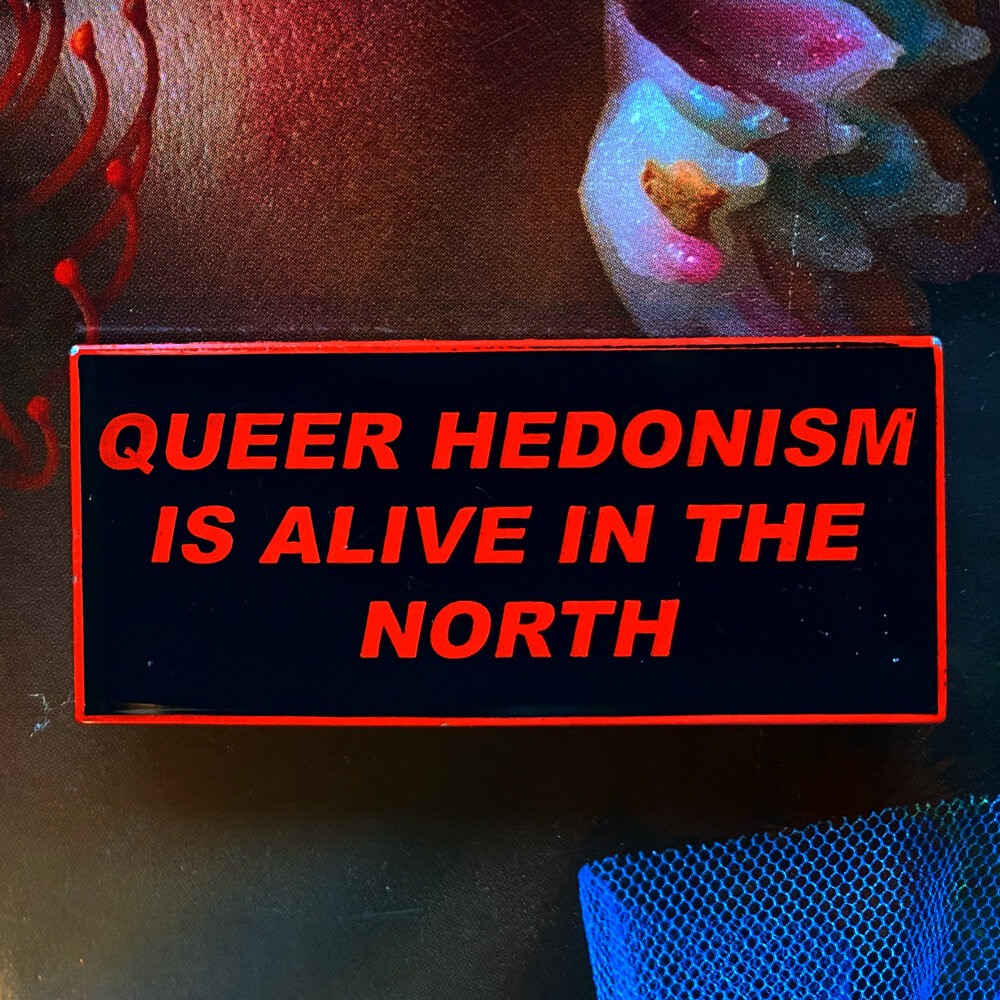
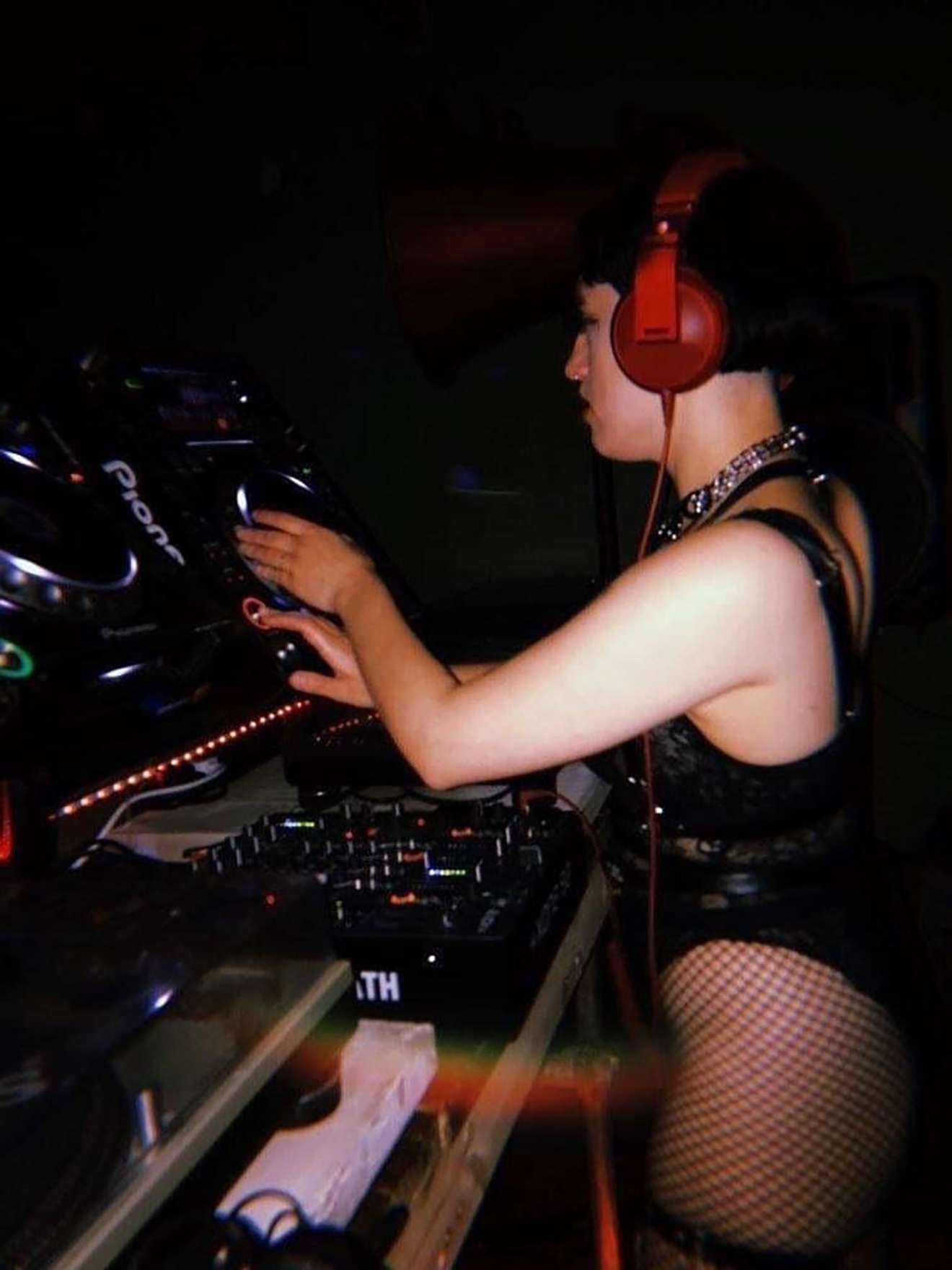
Reading Mark Angelo Harrison’s recent book, A Darker Electricity, which details the origins of the seminal free party collective and soundsystem Spiral Tribe, it feels like a glimpse into a different world. London in the early ‘90s was still feeling the effects of deindustrialisation, with an abundance of empty buildings that could be squatted for accommodation or as temporary rave venues. These were days before New Labour’s massive expansion of CCTV, justified partly under the sensationalist guise of the ‘war on terror’, and before the proliferation of smartphones and laptops invited surveillance into our homes and our pockets, and one of the book’s more striking impressions is the relative ease with which people could access space. In one, almost comically short paragraph, Harrison describes the discovery of a disused shebeen, with a purpose-ready dancefloor in the basement, which the Spirals quickly appropriated: “twenty minutes after getting in, we’d changed all the locks, and, from that moment on, we were proud proprietors of our very own nightclub.” The parties run in this venue enabled them to pay off their soon to be infamous soundsystem. Above all, the world portrayed in the book is one where the absence of landlords and the constraints of the 9-5 enabled a spiralling mass of unfettered creativity and collective action, where the multitude vastly outgrew the sum of its parts. Through today’s depressive malaise, the twin exhaustions of millennial grind culture and our dopamine-addled addictions to constant, technologically assisted entertainment, it’s a world that feels starkly distant.
Of course, this didn’t last long. The incredible momentum gathered by the free party movement quickly drew the attention of Tory ministers and hysterical tabloids, clashes with property developers and gangsters, and was eventually buried under the weight of police brutality and repressive legislation. A Darker Electricity culminates in the vicious and unsuccessful lawsuit brought by the Met against Spiral Tribe, scapegoating them as the sole masterminds behind the enormous rave at Castlemorton, in 1992, and which at the time was the most expensive trial in British history, all billed to the taxpayer. The same ideology of privatisation and enclosure that felt compelled to crush the free party movement has led to a housing crisis in which many young people, of ‘Generation Rent’, have had to reconcile not only with the idea that they may never own property of their own, but with the growing feeling that rents are also becoming out of reach. In the 1970s, 30% of people in the UK lived in social housing. These days the same number of people under 30 live with their parents. For the much-missed cultural critic, Mark Fisher, these socio-economic changes have caused incredible damage to culture. The late 20th century’s rapid innovation in music and culture was enabled by easy access to space and a robust welfare state, the material conditions that allowed for a popular modernism, in which "culture was opened up to working class inventiveness in a way that is now scarcely imaginable to us." The decimation of this access has led to the ‘slow cancellation of the future’ and a culture that’s fallen back on nostlalgic retromania.

Leeds-based DIY institution Wharf Chambers has direct roots in the city’s punk, squatter scene. It formed just over a decade ago, out of the ashes of a previous collective, when the building was known as Common Place. Over the years, Wharf has developed from a fully voluntary organisation to a non-profit venue and bar run on anti-hierarchical, collectivist principles, in which decisions are made by the members, with a nominal membership fee of £2, and staff paid on an equal, living wage basis. The collective has evolved organically over time and these days brings together several generations of members, all able to share diverse experiences and perspectives. Co-op member, Belén, tells us that these days Wharf is a "queer refuge" from the heteronormativity of city-centre venues, and that half the staff are people of colour, while the collective makes regular callouts to establish working groups to continually improve how they serve the membership and the wider community. For Belén, the function of spaces like Wharf is to challenge the "pervasive sense of hopelessness" felt by generations of young people that have inherited a Britain with a broken welfare system, increasingly extreme disparities of wealth, and a decadent political class that stokes reactionary discourses to distract from its flagrant disregard to democracy. While as individuals we may feel helpless, there is still power in community, and she speaks of feeling empowered by having a say in the collective culture and values of her workplace. Wendy Brown’s essay, Resisting Left Melancholy, warns against over-attachment to our own sense of loss, which "supercedes any desire to recover from this loss, to live free of it in the present, to be unburdened by it." An early inspiration for Partisan was Mark Fisher’s more optimistic notion of ‘acid communism’. In his later work, Fisher pointed towards the inherently revolutionary quality of collective joy, in its resistance to the deflated nihilism that capitalist consumer culture thrives on, challenging the left to reclaim the pleasure-oriented sense of possibility that shook the world in the countercultural ‘60s.
Read this next: How DIY culture is transforming Leeds' music scene
Bonjour’s Frankie has hope for the future. She notes that there’s always been a lot of resilience in queer communities, and that collective spaces and sites of resistance tend to be ephemeral. For Judith Butler, popular assemblies are always transient - this is "bound up with their critical function." While hope and resilience remain, new communities and collectives will form with new dreams and perspectives. The key, for Frankie, is to keep intergenerational dialogue open, to learn from what’s gone before and to support the growth of the new. Indeed, things are looking optimistic in Glasgow, with the recent return of the city’s famous after-hours venues and rumours in the queer community of new ventures in the works. Exit, an artist-run DIY venue opened just in September, giving new life to the disused space of an old ‘80s venue called Fury Murry’s, which was built on a crowdfunder intended to promote active participation from the community and has been programming events focused on local artists. Meanwhile in Sheffield, the non-profit, member-run queer collective, Gut Level, who also lost their original venue during lockdown, are close to opening their new venue at Chapel Walk following some incredible efforts in building the space and an ongoing fundraiser Times are tough right now, but spaces like these remind us that community is stronger than anything. It’s something we can’t afford to take for granted.
Mike Smaczylo is a PhD researcher on the connections between UK music subcultures, esotericisms, and anti-enclosure politics, and runs the Half Edge events in Manchester, teaming up with Partisan for a free party this weekend, Saturday. February 10


